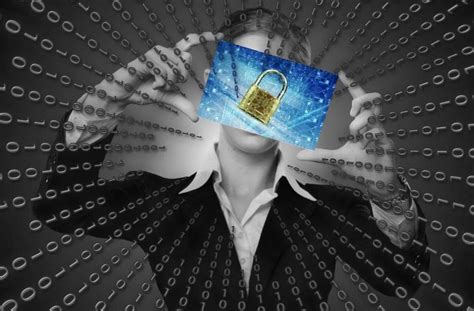5 Ways to Protect Your Privacy Online: Learn from Mia Malkova's Leak

Introduction
In today’s digital age, protecting your online privacy is more critical than ever. The recent leak involving Mia Malkova, a prominent figure in the entertainment industry, serves as a stark reminder of the vulnerabilities we all face. Her case highlights how personal data, once exposed, can have far-reaching consequences. This article explores five actionable strategies to safeguard your privacy online, drawing lessons from Malkova’s experience and broader cybersecurity trends. By understanding the risks and implementing proactive measures, you can minimize your exposure to potential breaches.
1. Strengthen Your Passwords and Enable Two-Factor Authentication (2FA)

One of the most common ways hackers gain access to personal accounts is through weak or reused passwords. Mia Malkova’s leak underscores the importance of robust password hygiene. Start by using unique, complex passwords for each account. A password manager can help generate and store these securely. Additionally, enable two-factor authentication (2FA) wherever possible. This adds an extra layer of security, requiring a second form of verification (e.g., a code sent to your phone) beyond your password.
Expert Insight: According to a 2023 report by Verizon, 81% of hacking-related breaches involve weak or stolen passwords. Implementing 2FA can block 99.9% of automated attacks.
2. Encrypt Your Data and Use Secure Communication Tools

Encryption is your first line of defense against unauthorized access to your data. Whether it’s emails, messages, or stored files, ensure they are encrypted. Tools like Signal for messaging and ProtonMail for email offer end-to-end encryption, making it nearly impossible for third parties to intercept your communications. For file storage, consider cloud services that provide encryption, such as SpiderOak or pCloud.
Steps to Encrypt Your Data:
- Choose encrypted messaging and email services.
- Enable encryption on your cloud storage.
- Use VPNs to encrypt internet traffic.
3. Regularly Audit Your Online Presence and Privacy Settings
Many people overlook the importance of managing their digital footprint. Mia Malkova’s leak could have been mitigated by regularly auditing her online accounts and privacy settings. Review the permissions granted to apps and services connected to your accounts. Disable access for unused or untrusted applications. Additionally, adjust privacy settings on social media platforms to limit who can view your posts and personal information.
Key Takeaway: A 2022 study by Pew Research found that 72% of internet users are unaware of how their data is being collected and used. Regular audits can help you regain control.
4. Be Wary of Phishing Attempts and Social Engineering
Phishing remains one of the most effective tactics for cybercriminals. Mia Malkova’s case may have involved social engineering, where attackers manipulate individuals into revealing sensitive information. Be cautious of unsolicited emails, messages, or calls asking for personal details. Verify the sender’s identity before responding. Educate yourself on common phishing techniques, such as urgent requests or too-good-to-be-true offers.
Pros of Awareness: Reduces risk of falling victim to scams.
Cons: Requires constant vigilance and education.
5. **Use a Virtual Private Network (VPN) to Mask Your Online Activity

A VPN encrypts your internet connection and routes it through a server in another location, masking your IP address and online activities. This is particularly important when using public Wi-Fi, which is often unsecured and vulnerable to eavesdropping. Mia Malkova’s leak could have been prevented if her online activity had been anonymized through a VPN. Choose a reputable VPN provider that does not log user data, such as NordVPN or ExpressVPN.
Expert Insight: A 2023 Cybersecurity Insider report revealed that 68% of companies use VPNs to protect employee data. Individuals can benefit from the same level of security.
Comparative Analysis: VPN Providers
| Provider | No-Logs Policy | Server Locations | Price (Monthly) |
|---|---|---|---|
| NordVPN | Yes | 60+ countries | $11.99 |
| ExpressVPN | Yes | 94 countries | $12.95 |
| Surfshark | Yes | 100+ countries | $12.95 |

Future Trends: The Evolving Landscape of Online Privacy
As technology advances, so do the threats to online privacy. Emerging trends like artificial intelligence (AI) and the Internet of Things (IoT) introduce new vulnerabilities. AI-powered attacks can predict user behavior, while IoT devices often lack robust security measures. Staying informed about these developments is crucial. Governments and organizations are also implementing stricter data protection regulations, such as the General Data Protection Regulation (GDPR) in Europe, which empower users to control their data.
Future Implications: By 2025, it’s estimated that 75% of the global population will have its personal data covered by privacy regulations. Proactive measures today will prepare you for tomorrow’s challenges.
What is the first step to protecting my online privacy?
+Start by strengthening your passwords and enabling two-factor authentication (2FA) across all accounts. This immediately reduces the risk of unauthorized access.
How can I tell if an email is a phishing attempt?
+Look for red flags such as urgent requests, unfamiliar sender addresses, and generic greetings. Verify the sender’s identity before clicking any links or providing information.
Are free VPNs safe to use?
+Free VPNs often come with limitations, such as data caps, slower speeds, and potential logging of user data. For robust privacy, invest in a reputable paid VPN service.
How often should I audit my online accounts?
+Conduct a thorough audit of your online presence at least every three months. Regular checks help identify and address potential vulnerabilities promptly.
What is end-to-end encryption, and why is it important?
+End-to-end encryption ensures that only the sender and recipient can read the messages. It prevents intermediaries, including service providers, from accessing your data, enhancing privacy and security.
Conclusion
Mia Malkova’s leak serves as a cautionary tale about the importance of online privacy. By implementing the strategies outlined above—strengthening passwords, using encryption, auditing your online presence, avoiding phishing, and employing VPNs—you can significantly reduce your risk of data breaches. As the digital landscape evolves, staying informed and proactive is key to protecting your personal information. Remember, privacy is not a one-time effort but an ongoing commitment to safeguarding your digital life.


